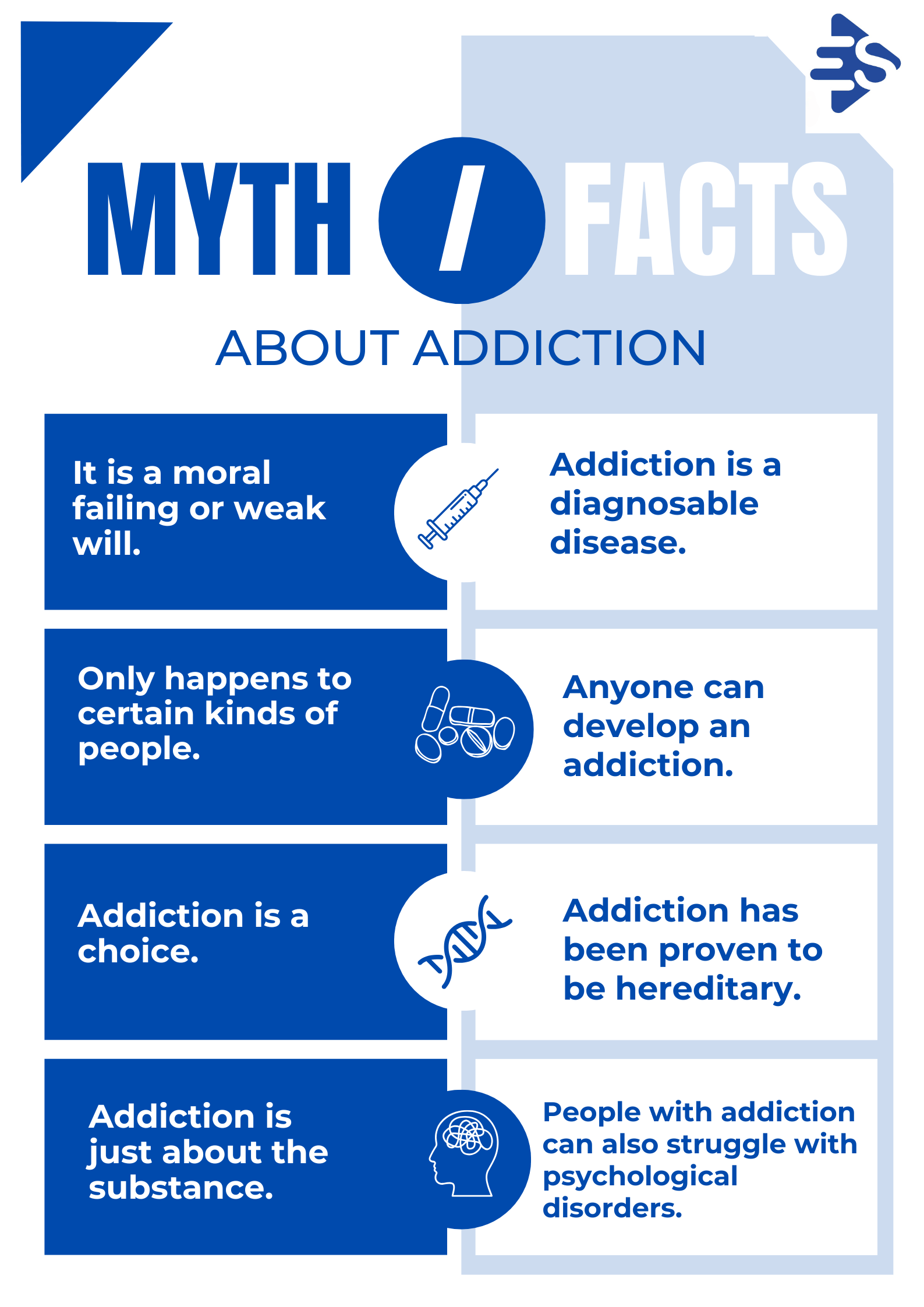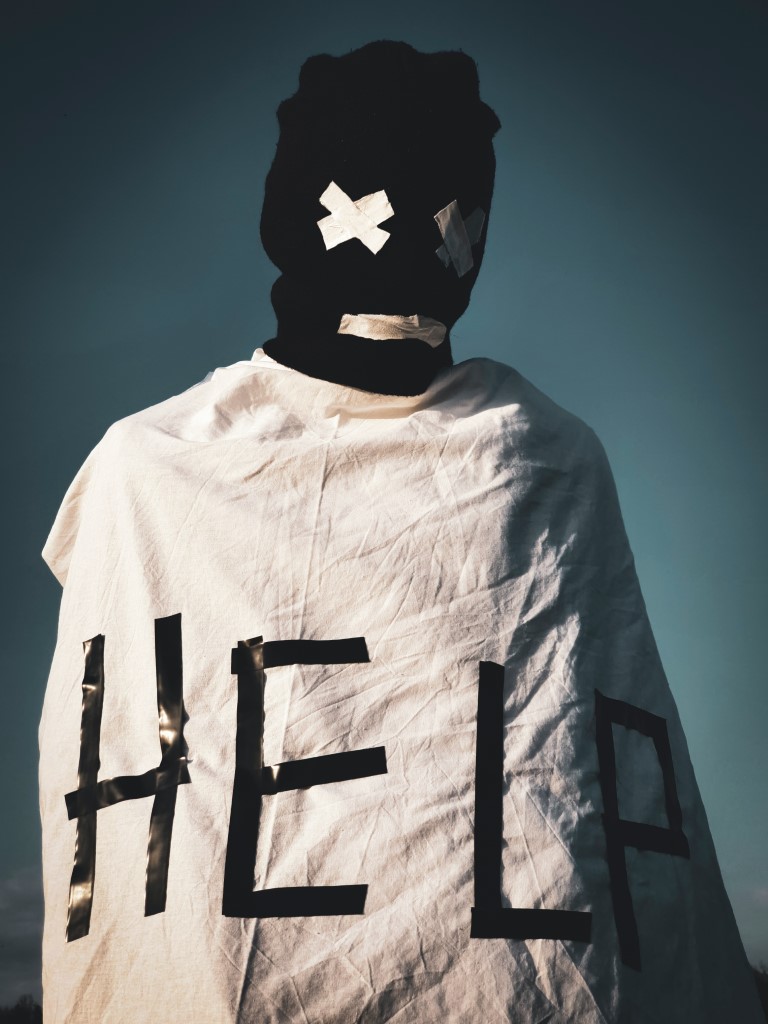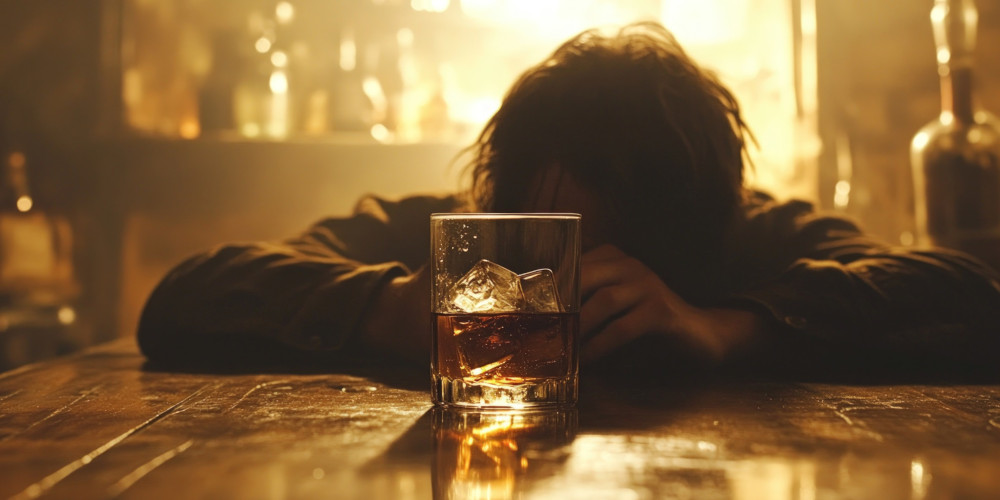
What are myths about addiction and sobriety? Can they stop people from getting into recovery?
For rehab to be effective, these myths need to be challenged by the truth. This is why it is important to have people on the staff of a treatment centre who are in recovery from addiction and who can speak honestly about their experiences.
This is the ninth post in our blog series 20 things you should know about rehabilitative treatment. This list was compiled by the European Association for the Treatment of Addiction, according to the latest evidence.
We debunk 10 common myths about sobriety and drug or alcohol addiction below.
10 Myths About Addiction and Sobriety
I can’t have fun without drinking or using: Recovery is boring
A common myth about recovery is that life without substances is boring, dull and dreary. This couldn’t be further from the truth.
Many people mistakenly view chaos of active addiction as exciting and think recovery will be bland in comparison. But the chaos of addiction is painful, not fun. For an addict, drinking and using has ceased to be fun for a long time.
In recovery, a person finally has time for pursuits other than getting and using substances. Many people learn about what they like and find pleasurable only after they have put down drugs and alcohol. They finally have time in their lives for passions and hobbies.
“When I came into recovery I thought having a ‘normal’ life would be boring when, in fact, recovery gave me the opportunity to explore different options for fun,” said Taahir, who has been sober for just over a year and is based in Johannesburg.
“For example, I enjoy playing football. It’s like magic when I touch the ball – I don’t want to stop. In addiction I didn’t bother playing and rather watched from the side-lines drinking and smoking. In recovery you can go and try things to find out if you like an activity. I’ve tried playing table tennis, going to gym and hiking – all things I never would have known I enjoyed if I was still living in addiction. Really, recovery has allowed me to feel joy again,” he said.
Moreover, getting sober is starting to become more popular. There is even a ‘sober curious’ movement and more and more alcohol- and drug-free events are being established and are gaining popularity.
I need to drink or use to cope with life
Many addicted persons use drugs or alcohol as a way to cope with life’s stressors and the resulting uncomfortable feelings. But drugs and alcohol don’t help you to cope, they help you to temporarily escape life’s problems. More often than not, this only makes your problems become bigger as you repeatedly refuse to deal with them.
 But the idea of getting sober can be scary to people who have never really learnt healthy ways to cope with life, normal responsibilities and difficult emotions. The prospect of having to learn to cope instead of run away can be overwhelming.
But the idea of getting sober can be scary to people who have never really learnt healthy ways to cope with life, normal responsibilities and difficult emotions. The prospect of having to learn to cope instead of run away can be overwhelming.
For an addict, using drugs and alcohol is a maladaptive coping mechanism that has long ago stopped working. Most people find that once they put the substance down and start to face ‘life on life’s terms’, their problems become more manageable. In recovery, people learn healthy coping mechanisms to deal with life and uncomfortable emotions. Although this process can be overwhelming at first, it is incredibly rewarding.
People who self-medicate with substances for underlying mental illnesses like depression or anxiety also run the risk of only making these conditions worse. Self-medicating is no substitute for proper medical help. The right diagnosis, therapy and medication are the only ways to successfully treat mental health problems.
You must hit rock bottom in order to be ready for recovery or sobriety
Comparing our ‘rock-bottom’ with another addict or alcoholic is dangerous. It has kept many people from getting sober because they tell themselves that their addiction isn’t ‘as bad’ or ‘bad enough’ for them to qualify for recovery.
Every person’s ‘rock-bottom’ is different and you don’t need to lose your job or end up on the street to ‘qualify’ for recovery. Many people keep themselves in denial because, for example, they buy their drug of choice at a pharmacy and not on a street corner. But, by definition, you are not an addict based on the specific substance you use or how much you have lost. If you have no control over your using and drinking and it is causing negative consequences (no matter how trivial these consequences may seem when comparing them to others’), you are an addict and your life will improve if you get sober.
Accepting you are an addict and that there is a solution earlier, rather than later, is always better. The less destruction you have caused to your life, the easier it is to rebuild and manage your life when you get sober. A lot of pain and heartache can be avoided if this myth is properly challenged.
Addicts and alcoholics are bad people
It is a widely-held belief that, because many people cause pain and destruction while feeding their addictions, they are inherently bad people. This is completely false: Using substances doesn’t determine whether you are a good or bad person. Just because you have done bad things in active addiction, it doesn’t make you a bad person at your core.
Many addicts and alcoholics experience overwhelming feelings of guilt and shame when they come into recovery. A large part of addiction treatment centres of overcoming these feelings and starting to align one’s behaviour in accordance with one’s morals so that guilt and shame can be lessened in the future.
 Many bad people have no addiction problems and many addicts are kind and compassionate. While using, many people do things that they would never do while sober. This does not make bad behaviour okay but realising this allows a recovering addict to make sense of what they have done in the past. Recovery affords one the opportunity to start behaving in ways that align with one’s true moral nature.
Many bad people have no addiction problems and many addicts are kind and compassionate. While using, many people do things that they would never do while sober. This does not make bad behaviour okay but realising this allows a recovering addict to make sense of what they have done in the past. Recovery affords one the opportunity to start behaving in ways that align with one’s true moral nature.
Being in recovery is lonely
Another myth is that being sober sets one up for an isolated and lonely life when, in fact, much of recovery is about connection. You might have to remove some toxic friends from your life once you become sober but there are many well-established 12-step fellowships where like-minded people regularly meet.
In recovery, one has an opportunity to get to know oneself and develop serenity from within. An aversion to spending time on one’s own is often rooted in an inability to face or sit with oneself. In recovery, people are encouraged to develop self-love and this often solves the problem of being unable to spend time alone.
In reality, people become more fulfilled and engaged human beings capable of maintaining strong and healthy relationships. People are more able to authentically connect while not using substances making recovery much less lonely than active addiction.
You have to be religious to get sober or clean
While many people do get sober with the help of religion, religious faith is by no means a prerequisite for recovery.
Many 12-step fellowships use the word ‘God’ which might scare non-religious people. However, in this case, ‘God’ refers to any Higher Power of your understanding. This power simply needs to be greater than you and can be the universe, morality the 12-steps etc.
The concept of surrender as contained in 12-step fellowships is important because self-will alone, relying on one’s own will, is not enough to keep one sober. One needs to find a source of power from outside oneself to be able to stay clean and sober.
Being an atheist or agnostic should never be a reason to avoid recovery.
Addiction is a choice
Nobody wants to become an addict. Only a very small percentage of people who use drugs or drink turn out to become addicts or alcoholics. This is why addiction, termed substance use disorder, is an accepted mental health condition in Western medicine. Like other illnesses, there are several criteria used to diagnose addiction. One of the hallmarks of addiction is the loss of control when it comes to substances. Addiction is, by definition, when one loses the very ability to choose when it comes to taking drugs or drinking.
While addiction is not a choice, recovery is and, to stay sober, one needs to actively choose sobriety every day.
You can’t be an addict if you hold down a job
 Many high-functioning addicts don’t fit with the stereotypes in society of what an addict or alcoholic looks like. A person can be diagnosed with addiction even if they still have their material possessions, are still married are still employed etc.
Many high-functioning addicts don’t fit with the stereotypes in society of what an addict or alcoholic looks like. A person can be diagnosed with addiction even if they still have their material possessions, are still married are still employed etc.
It is a dangerous misconception to think addicts need to look visibly broken or have completely dysfunctional lives. Many people wait until it’s too late to try to get sober simply because they use the fact that they still have a semblance of a normal life as an excuse to keep them in denial of their addiction.
Rehab is a cure
Many people need treatment for their addiction or alcoholism and, put simply, rehab works. But there is a belief that when a person completes treatment, they should be cured.
Rehab gets you clean, but you are responsible for keeping yourself clean. Like other chronic diseases, you have to continue to take your treatment in order to stay well: In recovery, this means using the programme and tools you have learnt in order to maintain your sobriety. Recovery is a life-long journey and it gets easier and more natural with time, but you are never completely ‘cured’.
Life in recovery is worry-free and always great
There is often the belief that once you put the drugs and alcohol down, all your problems will be solved and you will live an enchanted life. This delusional thinking can be tempting because of the horror and terror one often faces in active addiction. It can therefore comfort a person to think that sobriety will be free of conflict and anxiety.
While life in recovery is certainly less chaotic and dramatic and infinitely more pleasant than in addiction, it isn’t perfect. You will have to face hurdles and problems that any other human being has to face. But it is always better to face these challenges sober. The chances of overcoming these challenges are much higher if you face them with a clear mind and a healthy attitude.
In recovery, and especially in rehabilitative treatment, one learns tools to overcome problems in healthy ways. While positive emotions like happiness and joy are experienced in recovery, so too are the difficult emotions but, even then, they are much less likely to overwhelm you are living a sober life. These are some of the important myths that should be challenged in society, but especially in treatment centres helping addicts and alcoholics. These unhelpful misconceptions can be barriers to embracing sobriety and could keep people sick.
Do you think you might need treatment? Contact us for an obligation-free assessment today.


